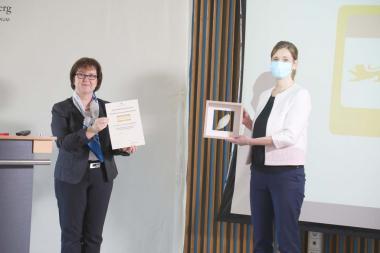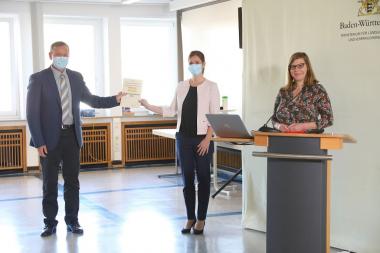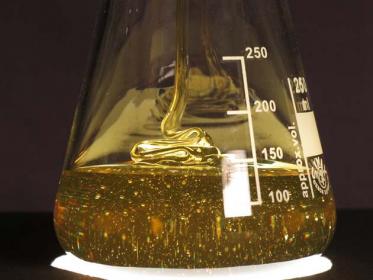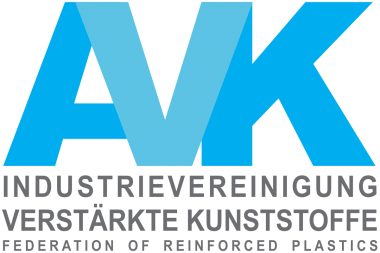DITF erhalten „Innovationspreis Bioökonomie Baden-Württemberg 2020“
Die Deutschen Institute für Textil- und Faserforschung (DITF) sind einer von fünf Gewinnern des „Ideenwettbewerbs Bioökonomie - Innovationen für den Ländlichen Raum“, der vom Ministerium für Landwirtschaft und Verbraucherschutz Baden-Württemberg erstmals ausgerufen wurde. Ausgezeichnet wurden Beiträge zum Klimaschutz, zur Ressourceneffizienz, zum Schutz der Umwelt und der Biodiversität sowie zur Entwicklung des ländlichen Raums. Am 25. November 2020 wurde der Preis von Ministerialdirektorin Grit Puchan während des 5. Bioökonomietags überreicht. Die DITF erhalten den Preis für ihre Forschung an nachhaltigen Carbonfasern. Der Pitch-Vortrag von Dr. Frank Hermanutz und Dr. Antje Ota erhielt zudem auch noch den Publikumspreis.
Ionische Flüssigkeiten (ionic liquids, IL) sind der Schlüssel zu nachhaltigen biobasierten Fasern für vielfältige Anwendungen in der Industrie. 2003 hat Dr. Frank Hermanutz mit seinem Team gemeinsam mit der BASF SE ein innovatives Lösungsmittel für Biopolymere, also Polymere aus nachwachsenden Rohstoffen, entdeckt. Auf dieser Basis wurden mit der patentierten HighPerCell®-Technologie Cellulosefilamentfasern entwickelt, die aufgrund ihrer spezifischen Fasereigenschaften als technische Fasern eingesetzt werden können. Sie sind zum Beispiel Ausgangsprodukt für cellulosebasierte Carbonfasern.
Carbonfasern werden vor allem im Fahrzeugbau eingesetzt, gewinnen aber auch im Bauwesen an Bedeutung. Sie sind äußerst hitzebeständig und belastbar. Herkömmliche, nicht auf Biopolymeren basierende Carbonfasern sind allerdings derzeit noch sehr teuer und ihre Herstellung belastet die Umwelt. Die Carbonfaserherstellung auf der Basis von Cellulose würde nicht nur die Umwelt schonen, sondern auch die Energiekosten senken. Für die Gewinnung von Zellstoff bietet sich zum Beispiel die heimische Buche an. Wissenschaftler des Kompetenzzentrums Biopolymerwerkstoffe der DITF bringen dieses neue Verfahren in das im April 2020 vom Land Baden-Württemberg gegründete Technikum Laubholz (TLH) ein. Dort wird die Technologie in enger Zusammenarbeit mit beteiligten Industriefirmen praktisch umgesetzt.
Hochleistungsfasern aus Cellulose sind für viele weitere Anwendungen geeignet, wie zum als Verstärkungsfasern im Beton oder als Bestandteil von sortenreinen Verbundwerkstoffe.
„Schon bald könnten biopolymerbasierte Werkstoffe die gleichen Eigenschaften aufweisen wie erdölbasierte Materialien. Das wäre ein enormer Beitrag zum Ressourcenschutz und zur Umweltverträglichkeit“ erklärt Frank Hermanutz.
Die Jury des Ideenwettbewerbs würdigt diese Forschungsleistung für Umweltschutz und Nachhaltigkeit mit dem Bioökonomie-Innovationspreis.
Deutschen Institute für Textil- und Faserforschung (DITF)











